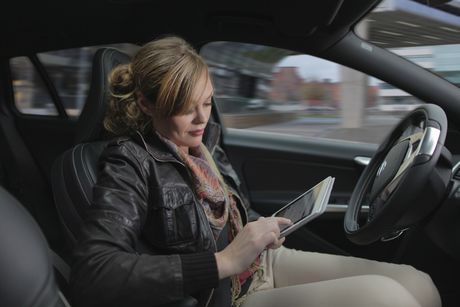Driverless cars trials in South Australia

With the potential to improve road safety and mobility, driverless cars will be tested on Australian roads in November 2015 through ARRB Group’s Australian Driverless Vehicle Initiative.
Supported and hosted by the South Australian Government, the trials of automated vehicles will coincide with a Driverless Vehicle Conference to be hosted by the state from 5–6 November.
The initiative brings together local and international experts from industry and academia, including Volvo, Flinders University, Carnegie Mellon University, the RAA, Telstra, Cohda Wireless and Bosch.
ARRB Group Managing Director Gerard Waldron said automated vehicles are far from science fiction, but rather a short-term reality that Australia needs to be prepared for.
“The advent of driverless cars is an opportunity to foster technological innovation and revive Australia’s manufacturing industry — the South Australian Government has been quick to recognise this,” said Waldron.
South Australian Premier Jay Weatherill and Transport Minister Stephen Mullighan have announced that South Australia will become the first Australian state to legislate to allow driverless vehicles on the roads.
“This trial presents a fantastic opportunity for South Australia to take a lead nationally and internationally in the development of this new technology and open up new opportunities for our economy,” said Weatherill.
ARRB Group’s national research initiative puts Australia on the map along with the UK, the US and Sweden as an international leader in automated vehicle research.
“ARRB will establish how driverless technology needs to be manufactured and introduced for uniquely Australian driving behaviour, our climate and road conditions, including what this means for Australia’s national road infrastructure, markings, surfaces and roadside signage,” said Waldron.
The trials in South Australia this November will be the first of many trials nationally, with discussions underway in a number of jurisdictions. ARRB Group is calling for additional states, territories and partners to support this important national research initiative.
“Driverless cars have a range of benefits that could significantly improve road safety and the quality of life of everyday Australians, add to the nation’s economic competitiveness and help relieve rapidly growing congestion that is crippling our infrastructure and creating productivity deficits in our capital cities.
“We’re seeking technology and automotive industry partners to assist us in Australia’s driverless vehicle innovation,” added Waldron.
Robert Bosch Australia Regional President, Vehicle Safety Systems Mark Jackman said: “We’re excited to be a part of the ARRB Australian Driverless Vehicle Initiative and anticipate that this will be a major step forward in advancing Bosch automated driving technologies in Australia for now and into the future.”
Volvo Car Australia Managing Director Kevin McCann said: “As a leader in the development of autonomous drive technologies, Volvo’s aim is to make this technology realistically available for customers in production cars in the near future.
“At Volvo we believe autonomous drive will lead to significant consumer and societal benefits, including improved traffic safety, improved fuel economy, reduced congestion and the opportunity for improved infrastructure planning. We are delighted to be involved with the ARRB demonstration event in South Australia, where we believe Volvo Car Australia can make a positive and significant contribution.”
Telstra Chief Technology Officer Vish Nandlall said: “We look forward to working with ARRB and seeing how we can use our technology and networks expertise to help make autonomous vehicle use in Australia a reality.”
RAA General Manager Public Affairs Penny Gale said that by 2020 all cars that come off the production line will have some ability to drive themselves, and we need to prepare.
“This type of technology has the potential to be a real win for road safety and mobility. Removing the need for a driver will open up a whole new transport opportunity for many of our members, particularly people with disabilities and the elderly, while removing the reliance on human behaviour will undoubtedly save lives.
“This trial will help us gauge the opportunities and issues road users might face and help us better prepare our members for the future of transport that is rapidly approaching.”
Rock lobster processor and exporter finds driver safety partner
A transport technology solutions provider has announced a new contract to enhance safety with...
Level crossing AI safety solution has merit
Among the merit recipients in the 2025 VIC iAwards was an edge AI solution designed to enhance...
Laser bird deterrent boosts tram depot safety
A Melbourne tram depot has reduced bird roosting by 90%, boosting safety through a fully...








